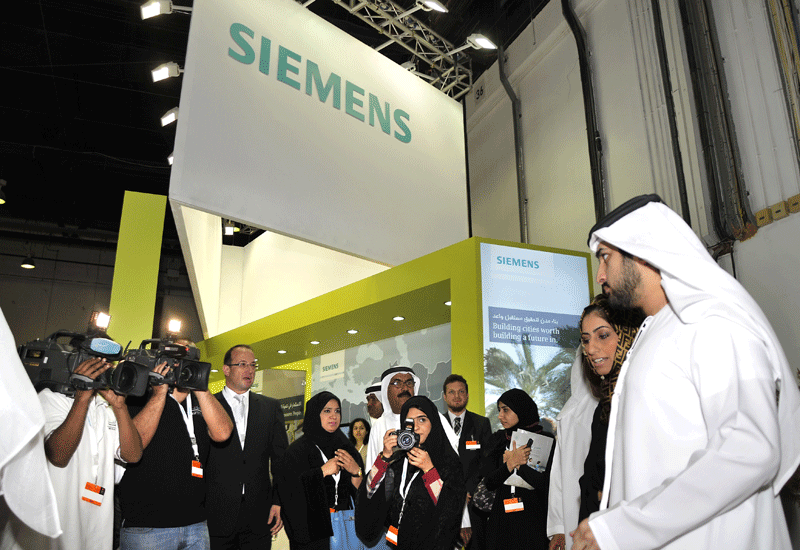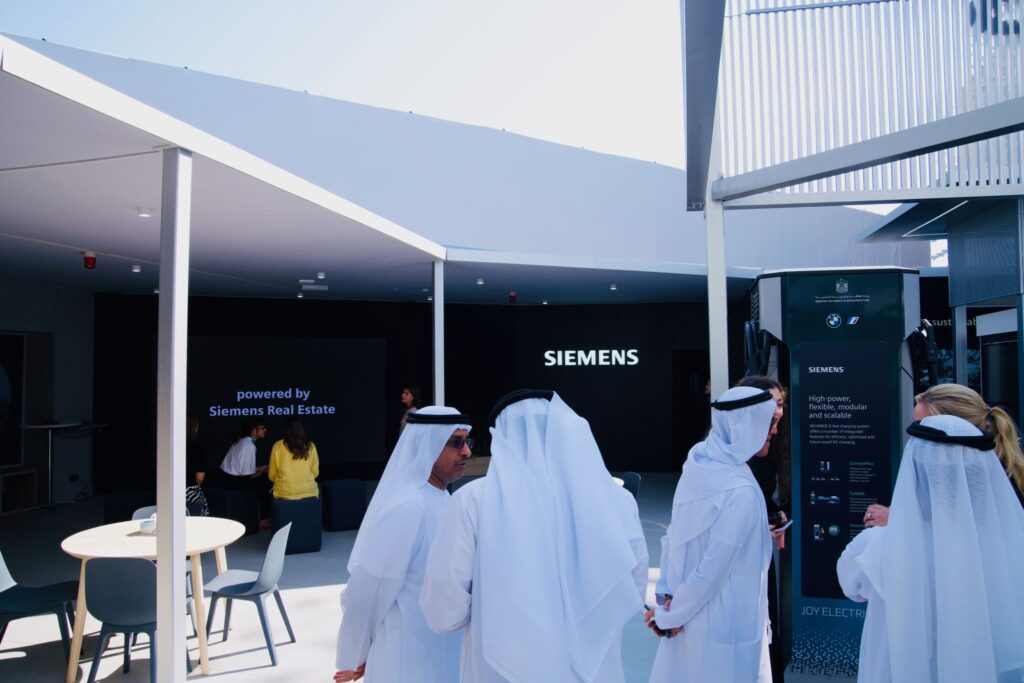In a significant stride towards sustainability, Siemens has entered into a partnership with the United Arab Emirates’ Ministry of Energy and Infrastructure (MoEI) to retrofit 60 government buildings. This initiative aims to reduce energy and water consumption by 27%, aligning with the UAE’s ambitious net-zero 2050 objectives.
A Commitment to Sustainability
The agreement was formalized in November 2024, with the presence of His Highness Sheikh Mohammed bin Rashid Al Maktoum, Vice President and Prime Minister of the UAE, and Ruler of Dubai. Under this collaboration, Siemens will finance, install, test, and operate advanced systems designed to curtail energy and water usage in federal buildings.
His Excellency Suhail Mohamed Al Mazrouei, Minister of Energy and Infrastructure, emphasized the UAE’s dedication to balancing economic growth with environmental preservation. He stated, “Through our partnership with the private sector, we are able to build on our achievements in the energy and infrastructure sectors while ensuring a more sustainable future for generations to come.”

The partnership supports the UAE’s Energy Strategy 2050, which seeks to increase the contribution of clean energy in the total energy mix to 50% and improve energy efficiency by 40%. This move is also in line with the country’s commitment to the Paris Agreement, which aims to combat climate change by reducing global carbon emissions.

How Siemens is Driving Change in Dubai
Siemens has long been a key player in Dubai’s transition toward smart and sustainable infrastructure. The company has deployed its state-of-the-art technology in several high-profile projects, including Expo 2020 Dubai and the Dubai Metro.

For the latest initiative, Siemens will implement energy-efficient solutions such as:
- Smart Building Technologies – Installing automated energy management systems to optimize power and water use.
- IoT-Enabled Sensors – Deploying intelligent sensors to track energy consumption in real time.
- Upgraded HVAC Systems – Improving air conditioning units to enhance efficiency and reduce electricity consumption.
- Solar Energy Integration – Exploring the possibility of integrating solar panels to further reduce reliance on non-renewable energy sources.
Economic and Environmental Impact
With energy efficiency becoming a global priority, Siemens’ project is expected to deliver significant economic and environmental benefits. Retrofitting government buildings could lead to substantial cost savings by lowering electricity and water bills. The estimated reduction of energy and water consumption by 27% could prevent thousands of tons of CO2 emissions annually, directly supporting Dubai’s sustainability goals.
Beyond environmental gains, the initiative is expected to create job opportunities in the UAE, particularly in the fields of engineering, renewable energy, and smart technology. By fostering innovation and developing a skilled workforce, Siemens is reinforcing its long-term commitment to the region’s economic growth.
Dubai’s Role as a Global Sustainability Leader
Dubai has been at the forefront of green transformation, implementing various initiatives to reduce its carbon footprint. The UAE Green Building Regulations, Dubai Clean Energy Strategy 2050, and Smart Dubai programs are just a few examples of how the city is investing in a sustainable future.
The collaboration with Siemens is yet another milestone in Dubai’s vision to become a global leader in sustainability. By retrofitting government buildings, the city is taking proactive steps to meet its energy targets while setting an example for the private sector to follow.
Future Prospects and Expansion
Following the successful execution of this project, Siemens is likely to explore further opportunities in the UAE and across the Middle East. The company is already in discussions with several key stakeholders about expanding its energy efficiency initiatives to include residential buildings, commercial complexes, and industrial facilities.
Dubai’s push for green transformation is expected to attract more international partnerships, further accelerating the transition to a cleaner and more energy-efficient future. Siemens’ continued investment in smart infrastructure and digital technologies positions the company as a key enabler of this transformation.
Conclusion
Siemens’ partnership with the UAE government marks a crucial step in Dubai’s sustainability journey. With a focus on reducing energy and water consumption, the initiative promises to make a lasting impact on both the economy and the environment.
As Dubai continues to lead by example, its collaboration with global technology leaders like Siemens highlights the importance of innovation and private-sector participation in achieving long-term sustainability goals.
Also read: Top 5 Most Expensive Universities in Dubai Unveiled














